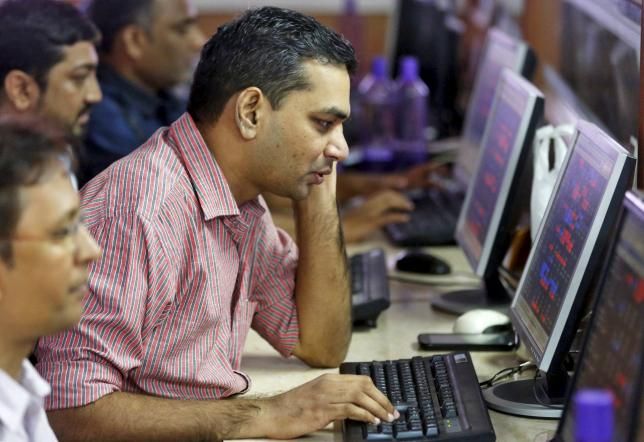
A majority of market participants expects India to outperform global peers
The UK referendum to leave the EU will only have a near-term impact on domestic equities and Indian markets will outperform their global peers, believe majority of the participants in a poll of brokerages and mutual fund houses conducted by Business Standard.
Any further weakness in the rupee against the dollar, however, will negatively impact overseas investors’ sentiment and may weigh on market performance, they said.
Business Standard on Monday polled 21 market participants to gauge their sentiment and views in the aftermath of the Brexit vote.
Around 64 per cent of those polled said Brexit is a ‘near-term negative’ for the Indian markets, while 14 per cent saw it as a ‘non-event’ for domestic equities.
Another 14 per cent said Brexit would impact Indian equities in ‘medium-term’, while only 10 per cent said its impact will be long-lasting.
The benchmark Sensex on Friday plunged as much as 1,000 points, or four per cent, before recovering to settle 2.2 per cent lower.
The rupee, after dropping to 68.21 on Friday, settled at a four-month low of 67.98 against the dollar.
Both Sensex and the rupee posted slight gains on Monday but Brexit concerns lingered on investors’ mind amid continuing crisis in global markets.
“The negative impact of Brexit on India, though difficult to quantify, is likely to be limited in the near term,” said Saurav Anand and Anubhuti Sahay, analysts at Standard Chartered.
“The immediate impact of the UK’s exit from the EU on India’s economy is likely to be felt via the financial market and confidence channels.
"However, India’s relatively strong fundamentals are likely to leave it less exposed than Asian peer economies,” they said.
India’s insignificant dependence on the UK in terms of exports and foreign flows means that the direct impact on the domestic economy is negligible.
But if rupee weakens against the dollar because of risk-off sentiment and flight to safety of overseas investors, it might end up hurting Indian equities.
No wonder, two-thirds of those polled said rupee weakness could weigh on FII sentiment and markets.
“Over the next few weeks, investors must closely watch currency movements globally and particularly how emerging market currencies react to a strengthening US dollar.
Currency market volatility -- particularly any signs of EM currency vulnerability— may emerge as transmission channels of risk to equity markets, including India,” said Abhay Laijawala, head of research, Deutsche Equities India, which expects India to “outperform many of its EM peers”.
An overwhelming 81 per cent of brokerages believe the Indian markets will ‘outperform’ rest of the world.
Interestingly, none of the participants expect the Indian equities to ‘underperform’.
It is worth noting that Indian equities were among the worst-performers during a sharp drop in global equities during the start of the year because of global growth woes.
Similarly, Indian markets were among the worst-performers when global equities went into a downspin in August 2014, following China’s surprise devaluation in yuan.
The optimism in terms of out-performance stems from improvement in domestic macro economy and early signs of revival in corporate earnings.
Nearly two-thirds of participants expect the benchmark indices to perform better in the remaining half of 2016. So far this year, the benchmark Sensex is up just one per cent.
However, given the global uncertainty and lingering rate hike by the US Federal Reserve, returns in the second half too might be modest.
Deutsche Bank, for instance, on Monday slashed its year-end Sensex target from 29,000 to 27,000, (implying just 2 per cent upside), citing financial market volatility.












 © 2025
© 2025